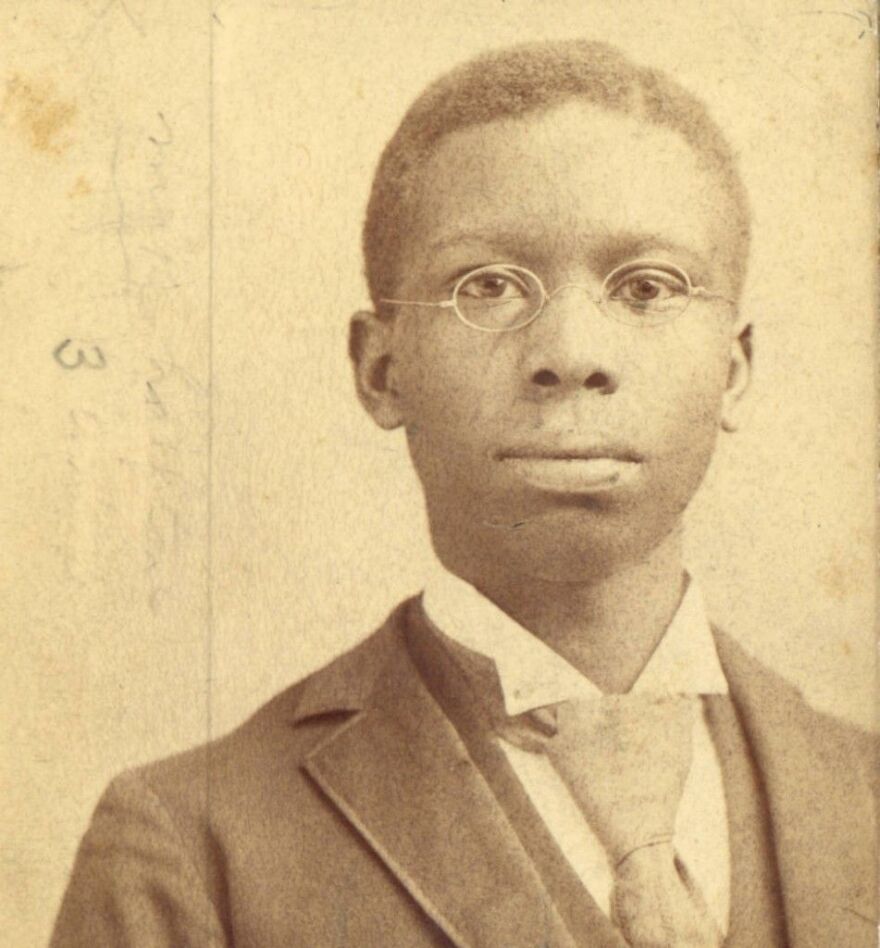Poet Paul Laurence Dunbar is being celebrated all month. He would have been 150 this June 27th.
Many visitors to Paul Laurence Dunbar’s House come with the same story, says Angela Stewart. She’s a park ranger and knows the poet’s study and parlor well.
“Their parents spoke to them using Paul Laurence Dunbar’s poetry. There’s a poem called Little Brown Baby, and so it’s 'Little brown baby with the sparkling eyes...' You know, it’s like this really nice memory that people have of interacting with their parents as they recited his poetry.”
Omope Carter Daboiku has these memories too. As a writer and storyteller, she has helped out at the Dunbar House for a while.
“My mother’s oldest sister had a very ample lap and a corner reading section with an easy chair and a bookcase,” recalls Carter Daboiku. “And she taught me how to read, actually. She read the Sunday comics to me. And she would create these voices. And she would recite In the Morning. 'Lias, Lias, praise the Lord, don’t you know the day is upon…' And I didn’t know it was Dunbar. I just knew it was a great poem, and she had a great voice.”

Paul Laurence Dunbar wrote his dialect poems to be spoken. Carter Daboiku knew the poems but didn’t see them in print until college.
"Dunbar wrote in various different forms of Negro dialect,” says Carter Daboiku. “So we talk about Dunbar’s dialect and how difficult it was for him to want to honor the language of his people without being perceived and frozen as a minstrel."
Dunbar’s dialect poems paint pictures of everyday African American life after enslavement. He performed his work across America and Europe, but most white audiences didn’t want to hear his standard verse. The dialect poems paid the bills. Angela Stewart tells of one event in Akron when Dunbar intended to give the audience what they wanted.
“But there was a gentleman who spoke before him and spoke about the state of African Americans in the South. And his underlying message was they’re lazy, and they might as well have not been freed. So Paul Laurence Dunbar addressed that. He recited his work “Ode to Ethiopia” where he speaks to, um you know, 'Be strong my race.' He spoke to people who were downtrodden, spoke to people who were figuring out what it meant to be free.”

In 2015, the park rangers wanted to strengthen ties between Dunbar’s legacy and the Dayton Community. So Omope Carter Daboiku called on African American tradition to create the Dunbar literary circle.
“I was thinking about the soirees and circles that people would have in their homes with a high tea after church where they would read poetry and who could read read, who couldn’t read learned to read and listened, and the Chicago Defender might have been read in that circle.”
For the past seven years, the circle has met every month. Each month they start with a different Dunbar poem to explore a theme. When Angela Stewart joined the Dunbar House, the literary circles inspired a discussion with her extended family about Dunbar’s renowned poem, “We Wear the Mask.” It was 2020, a time of masking and heightened racial tension.
Stewart recounts this family discussion. “It’s harder to connect to people because we’re wearing the mask. You know, people don’t know who you are when you have the mask on. And then, you know, you might be dealing with a lot, you know, not feeling safe in the classroom, not feeling safe in your own car, but smiling, another mask that’s worn.”
Dunbar, who died young at 33, is part of a long tradition of African American literature. For Carter Daboiku, she cannot imagine her own writing without the lessons of Paul Laurence Dunbar.
“You can’t cut yourself off from the root. You will wither and die. So what’s he done for me? Freed my soul, hmm mm. Let me know that my voice is just as important as any other Appalachian voice. It’s unique and special, ain’t none of us alike. So Dunbar is the root.”
The Dunbar 150: The Sesquicentennial Flagship Celebration is this Saturday at Victoria Theater and will celebrate the wide scope of Dunbar’s art through poetry, music, and dance.
To learn more about Dunbar’s life and literature:
- https://libraries.wright.edu/special/dunbar/
- https://udayton.edu/artssciences/academics/music/dunbar/index.php
Culture Couch is created at the Eichelberger Center for Community Voices at WYSO.


